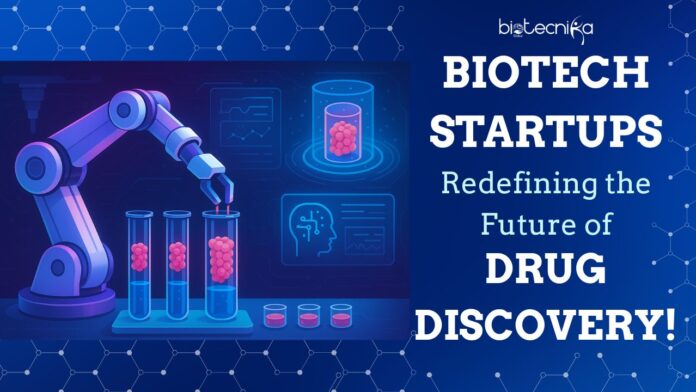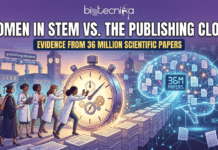Biotech Startups Innovations in Drug Development
In today’s fast-moving biotech, the startups within the area of drug development and discovery are pushing the edge of creativity: using 3D biological models which, apart from drug discovery tools, can emulate a human organ’s full function; greener research methodologies; and more intelligent lab automation. This article will discuss how the startups are making drug development more effective, sustainable, and human-relevant.
Transformative technologies and changing regulations in recent times have definitely altered the process of drug discovery. Today, there is no stage in drug development, from the quest for a perfect target down to accelerating clinical trials, that does not somehow involve AI. Recently, scientists have also used advanced 3D models to give further insight into disease mechanisms. Just this year, the FDA announced plans to move away from animal testing and rely on human-based laboratory models and AI-based technologies.
The pharmaceutical industry is driven by a need for innovation that can produce medication in a more rapid, smart, and sustainable manner. It’s the biotech start-up organizations, generally taking the biggest risks, that often ensure real change without being burdened by large legacy systems. Many did just that during the recent ELRIG Drug Discovery 2025 conference, highlighting new developments in automation, sustainability, and 3D modeling. These organizations represent those best positioned to drive the next wave of drug development.
Startups Bridging Gaps in 3D Models
Traditional models include animal models or flat 2D cell culture; these often don’t reflect the complexity of the real world. “Current preclinical models often fail to capture the complexity of human biology because 2D cultures lack essential features and animal models are costly and often not predictive,” one startup CEO said.
As an example, the startup Syntopia engineered a microfluidic apparatus that enables compartmentalization and continuous perfusion in a three-dimensional cell environment. This means that the cells experience conditions much closer to real life while experimental data can be more complete, predictable, and scalable.
Efficiency and Automation in the Startup Laboratories
Cell passaging and most laboratory activities remain very time-consuming and resource-intensive in nature. Another startup, Impulsonics, addressing the same problem uses acoustic technologies to automate cell culture processes within a bench-scale device. Now, scientists can focus on something more valuable to do. They also claim that their technology reduces plastic waste by about 50% per process, improving sustainability and efficiency.
Sustainability as a Core Concept
Sustainability has gone from nice-to-have to an operational must-have for labs. Wasteless Bio, a new firm, has created a marketplace that matches researchers in need with excess unwanted material from other life-science laboratories. This reduces environmental footprints while minimizing waste and costs. “We’re trying to do for science what Vinted does for clothing,” said its CEO.
Significance
- Better human relevance: With more realistic 3D models, drugs can be tested in environments more like the human body, and clinical trial success rates can potentially improve.
- Saving Time and Money: In labs, labor, materials, and time are all saved through automation and more intelligent procedures.
- Environmental impact: The industry can reduce its impact on the environment by using less plastic, conducting fewer animal tests, and reusing lab equipment.
- Acceleration of Innovation: Startups can push the industry forward much more quickly because they are risk-takers and have the flexibility to do so.
Turning Ahead
We should expect a shift in how drugs are discovered: as start-ups scale up and their technologies are more commonly applied, human-relevant models, automation, and a much greater emphasis on sustainability will be the norm, not the exception. The results may be better treatments developed more speedily with less waste. Biotech startups prove it’s possible to innovate responsibly. The future of science is intelligent, faster, greener through the combination of advanced 3D modeling with automation and sustainable practices. It is also changing the very way drugs are discovered. As such forward-thinking companies continue to grow, they set standards for what modern-day drug research should look like: efficient, ethical, good for humans, and good for the planet.






